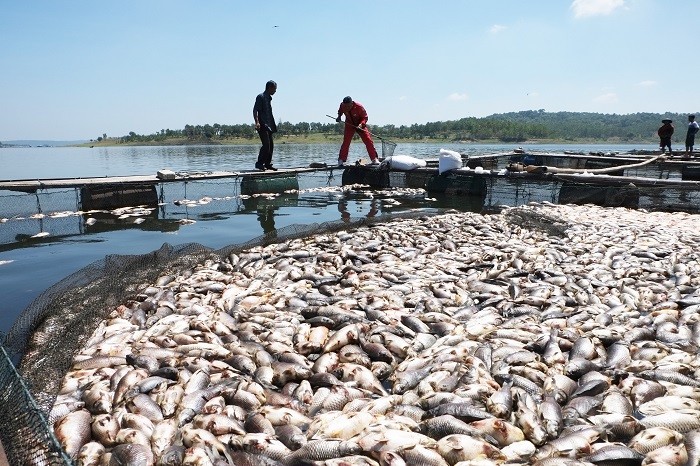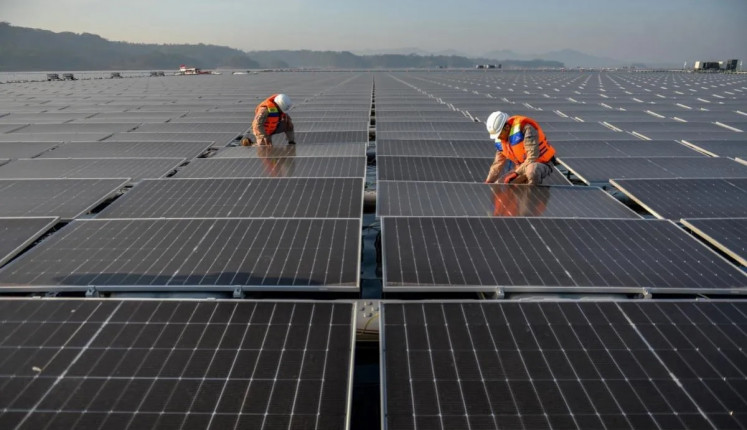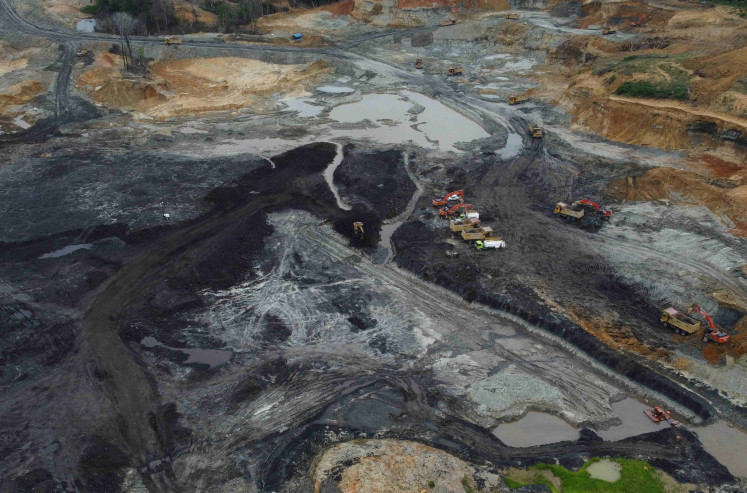Popular Reads
Top Results
Can't find what you're looking for?
View all search resultsPopular Reads
Top Results
Can't find what you're looking for?
View all search resultsChemical recycling is our future
Change text size
Gift Premium Articles
to Anyone
A
quaman movie villain King Orm started the war with the surface world because humanity has been polluting life below water. Though opposing war, I concur with him that marine pollution has reached an alarming point.
Two months ago, a sperm whale was found stranded in Wakatobi in Southeast Sulawesi with 5.9 kilograms of plastic waste in its stomach. A recent study by the Indonesian Institute of Sciences (LIPI) unveils the hideous fact that microplastics have polluted every part of Indonesia’s ocean and got into our bodies through the seafood we consume.
As if responding to King Orm’s rage, nearly 30 global companies launched the Alliance to End Plastic Waste recently in London. The alliance committed US$1.5 billion over the next five years to help end plastic waste in the environment and pledged to develop and scale new solutions that will minimize and manage plastic waste, while promoting circular economy.
Plastics are popular due to its attractive qualities and benefits. Often performing better than other materials, they save costs and resources, enable health and safety, and deliver convenience. Specially engineered plastics can replace metal parts of a car, reducing its weight and thus fuel consumption and emissions.
But while captivated by its versatility, we are overwhelmed by the responsibility to manage them post-use. Plastic pollution in the ocean can be traced back to as early as the 1960s, when scientists carried out studies on marine and coastal organisms.
The basic principle of waste management is that the less we produce, the less we have to manage. To help minimizing waste, responsible use of plastics has been promoted through policies, campaigns and various initiatives like paid plastic bags or bans on single-use plastic straws.
On an individual level, the movement is marked by lifestyle change. Awareness is built around the idea on whether we really need plastics at all. After that, refraining from using unnecessary plastics comes naturally as we carry items we just bought in our tote bag and ask the barista to serve our coffee in their house mug.
When the use of plastics is inevitable, we are reminded of the simplest and most famous waste management hierarchy: Reduce, reuse, recycle. The first two are pretty straightforward: use as few as possible, then use them again. For plastic waste we unavoidably made, we convert them into new materials and objects.
Traditionally, we turn plastic waste into useful materials without changing its basic structure – known as mechanical recycling. One good example is using plastic bags to make yarns and creatively crocheting them into durable bags and pouches. Another is the use of plastic waste as a composite to build roads. While questions about whether the plastic can break down into microplastics and escape into the environment must be addressed, plastic-bitumen composite roads are proven to have better wear resistance.
Despite its role in reducing plastic waste, mechanical recycling cannot fully eliminate plastic waste in the environment, nor completely close the loop. Unrecyclable plastic waste, such as mixed or contaminated plastic, is usually sent to landfills or incinerated. Poorly handled plastic waste remains in our streets, goes into our rivers, and ultimately ends up in the ocean — to disturbingly return as microplastics in our food.
To our advantage, chemical expertise enables innovation in recycling technology. Chemical recycling breaks new ground in the circular economy by using plastic waste as a source of raw materials. Through thermochemical processes, unrecyclable plastic waste is broken down to oil or gaseous products, which can then be used to partially replace fossil feedstock in chemical production and produce new products, especially plastics. Manufacturing products that meet high quality and hygiene standards, like food packaging, is possible because they have exactly the same properties as products made from fossil resources.
Chemical recycling is an important step towards achieving a circular economy. We can close the loop by turning waste from old products into raw materials for new products, and therein lies the path to a healthier, more sustainable future.
Finally, King Orm will lose his excuse to declare war because humanity and life below water can co-exist harmoniously.
***
The writer is head of corporate affairs at BASF Indonesia.










